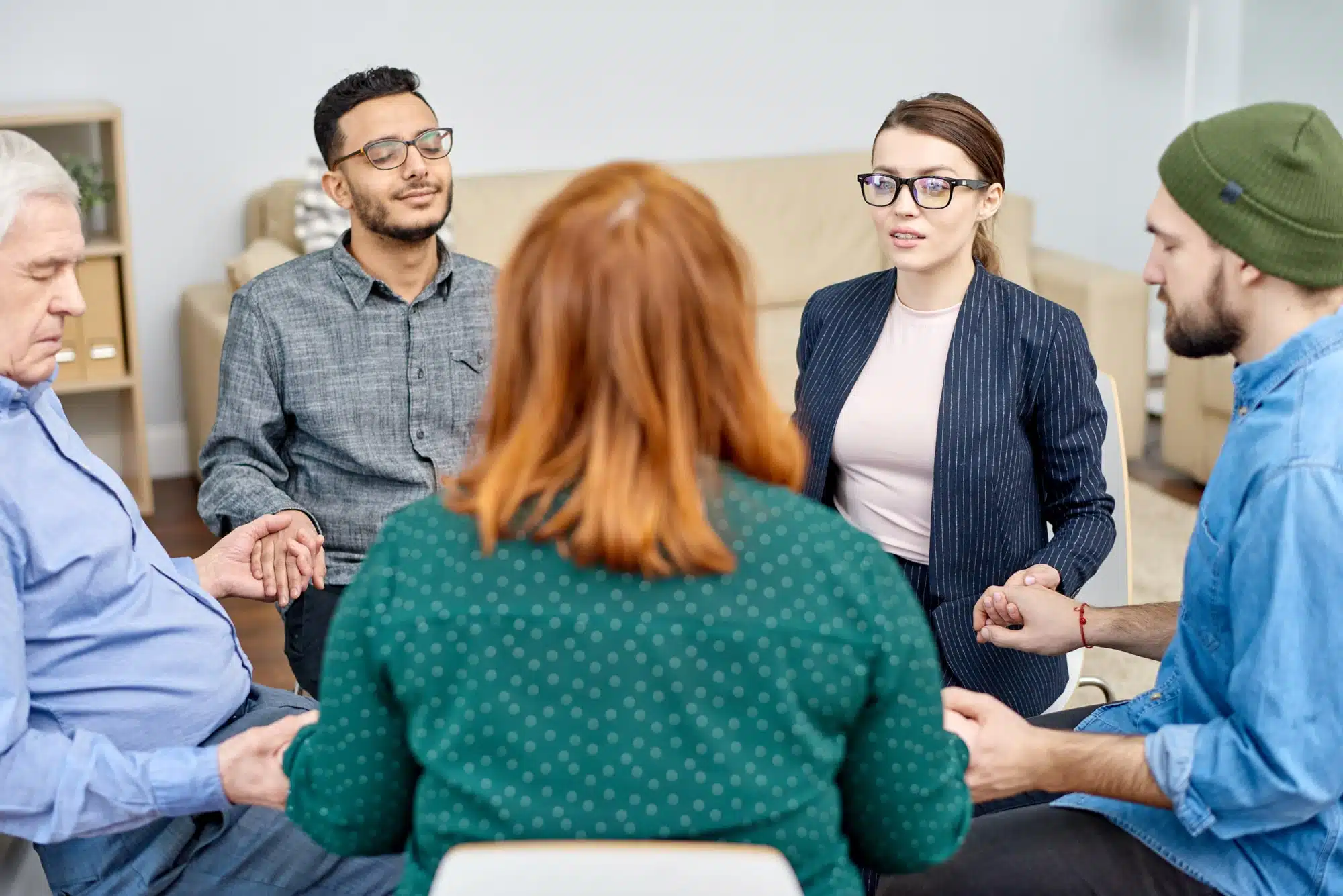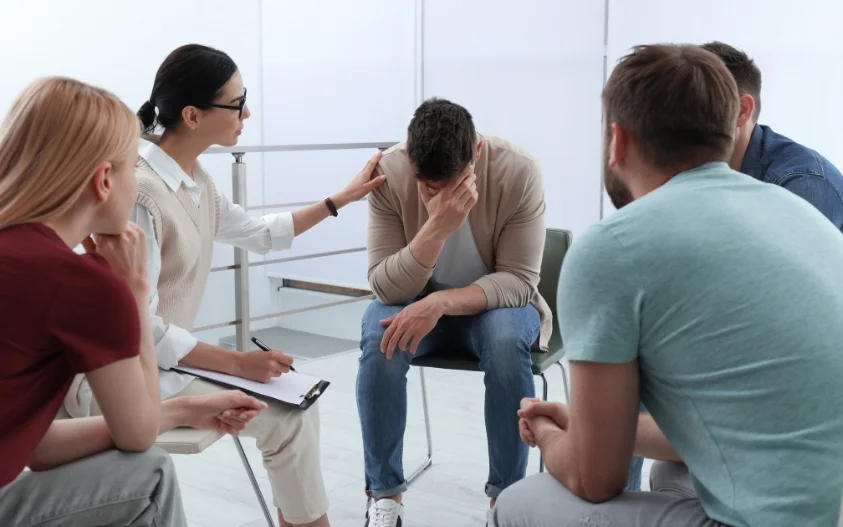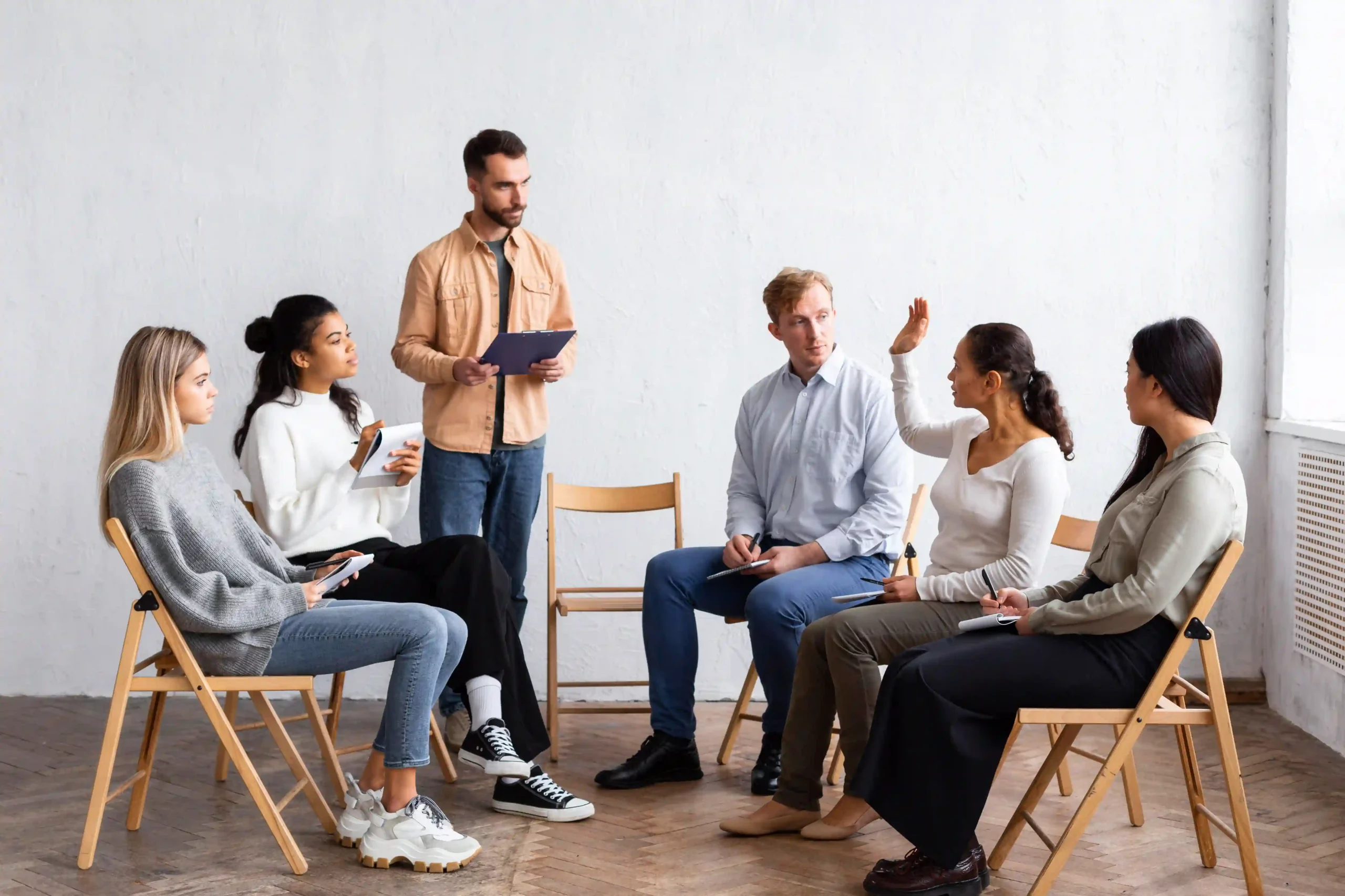24/7 Helpline:
(866) 899-221924/7 Helpline:
(866) 899-2219
Learn more about Couples Rehab centers in Mecklenburg County
Couples Rehab in Other Counties

Other Insurance Options

Access to Recovery (ATR) Voucher
Beacon

MHNNet Behavioral Health

Carleon

Ambetter

Humana

UMR

Lucent

MVP Healthcare

Regence

Coventry Health Care

Health Choice

CareFirst

ComPsych

BlueShield

Absolute Total Care

Self-pay options

Cigna

Holman Group

Optum

Carolinas HealthCare System Behavioral Health
Carolinas HealthCare System Behavioral Health offers a variety of mental health and substances abuse...

Hammett Counseling And Consulting
Hammett Counseling And Consulting is a public rehab located in Cornelius, North Carolina. Hammett Co...



































































Triple Play Farm
Triple Play Farm is a private rehab located in Davidson, North Carolina. Triple Play Farm specialize...

Crossroads Reentry Ministries – CRM
Crossroads Reentry Ministries - CRM is a Non-Profit rehab center located in Huntersville, NC. Crossr...































